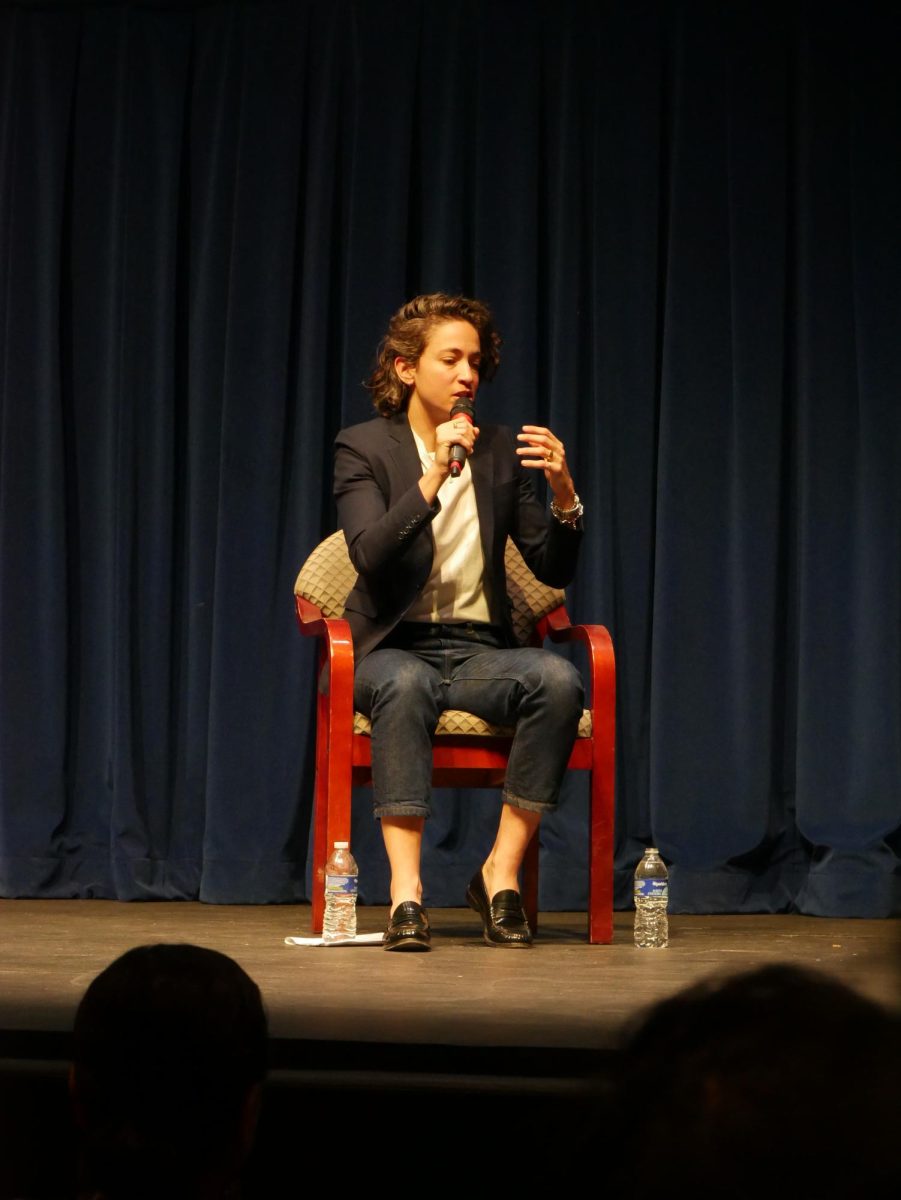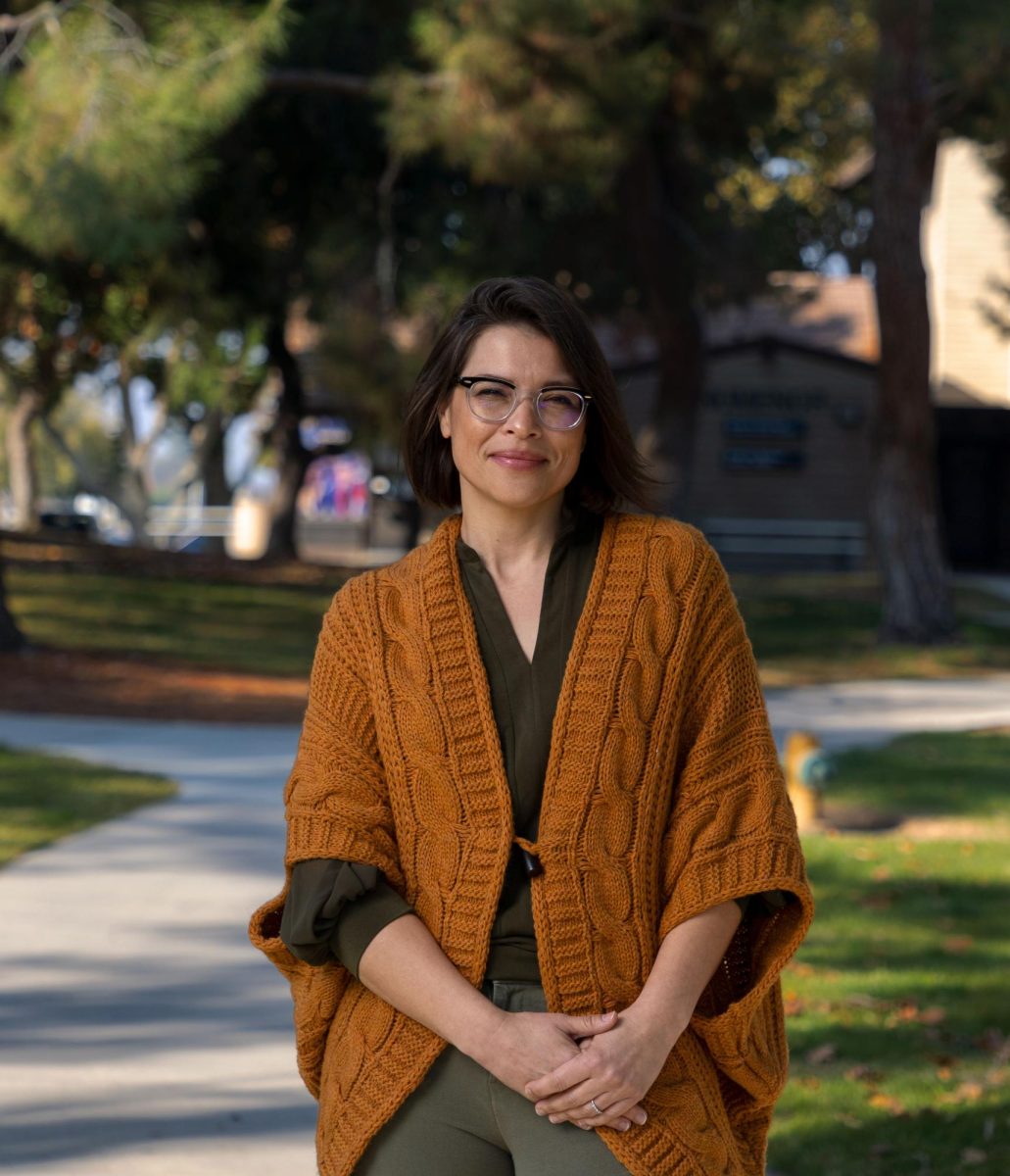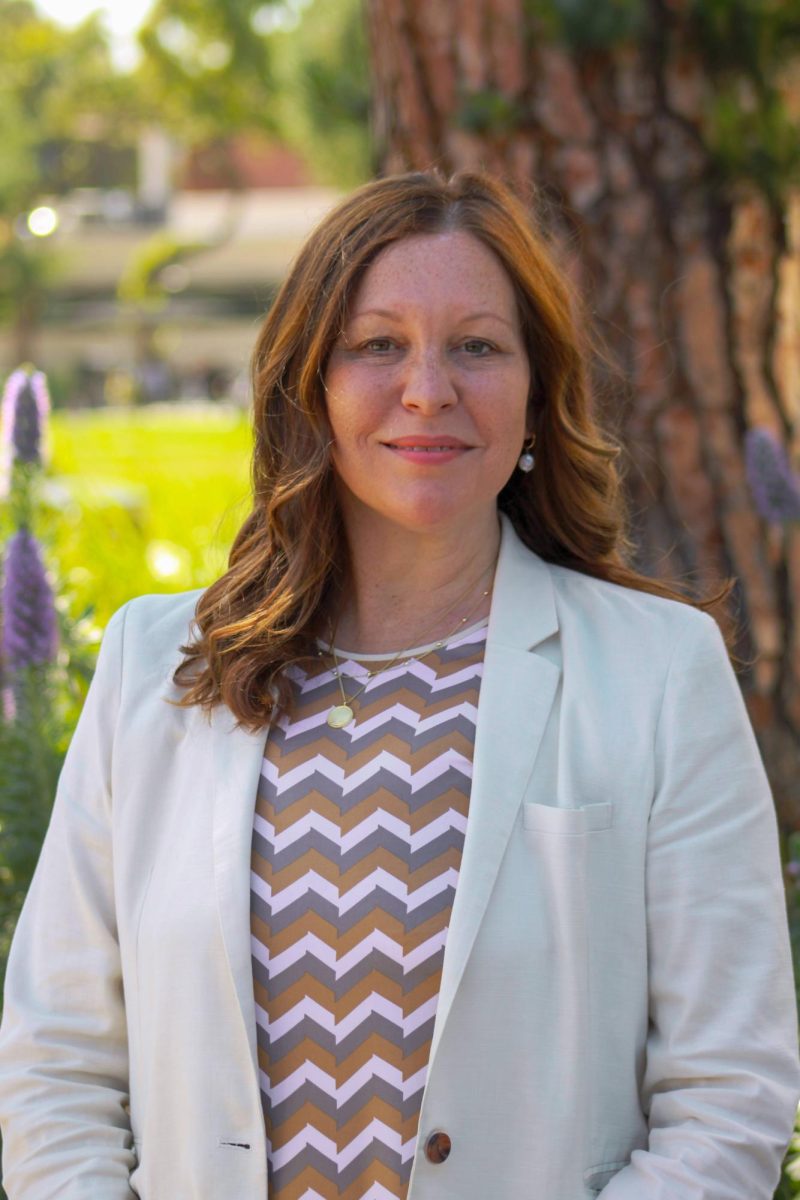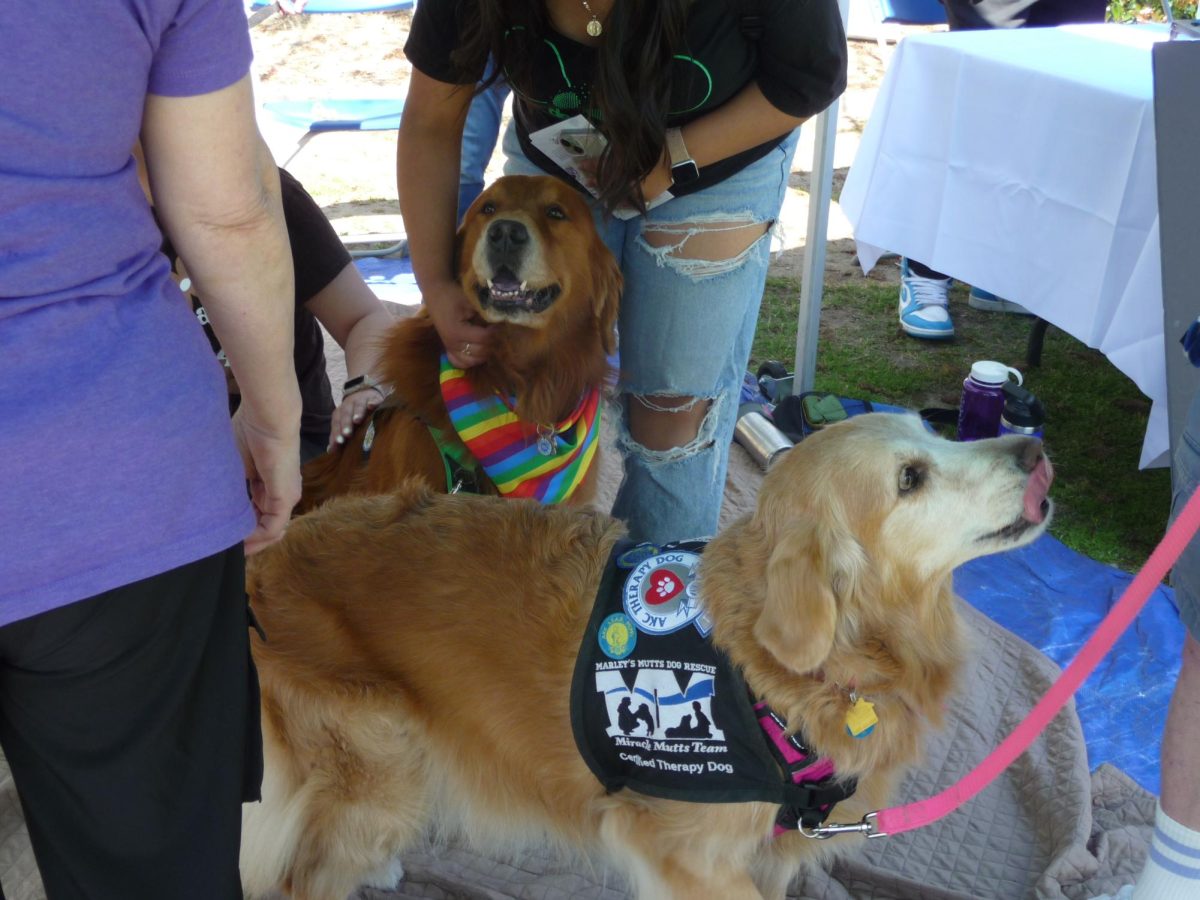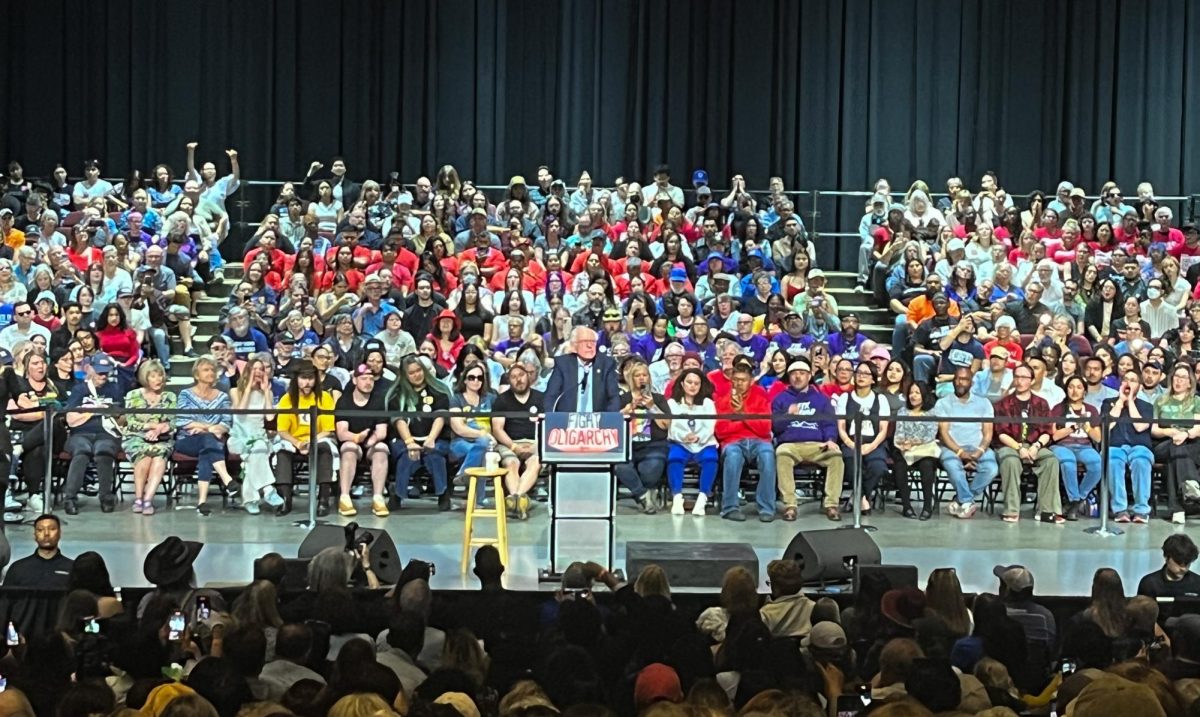
Debra Jackson, Philosophy Professor at CSUB gave an introduction of herself and the what the Consent Project was about, on April 30 inside the multi-purpose room inside the Student Union.
By Stephanie Cox
Staff Writer
My grandmother used to tell me as a child, “No means no.” I learned early that it was my right to say “no” in an uncomfortable or unwanted situation. However not every person knows that saying no is an option for them.
The Consent Project is part of Sexual Assault Awareness Month. The event was organized by Savannah Andrews, a 20-year-old psychology major and the Counseling Center and took place in the Multi-Purpose room in the Student Union on Thursday, May 1st.
The event began with introductions by Janet Millar, one of the counselors at the Student Counseling Center. Millar then introduced student, Ashari Wallace, a 22-year-old, child adolescent and family studies major and woman and gender studies minor, to present a poem that she had written herself titled “A Poem for She.”
“It’s something that’s close to me and helped me heal from an experience,” said Wallace. Her poem featured the struggle of a young girl who endured sexual acts.
In the closing of her poem Wallace says, “Silence is not consent. Silence is fear, confusion, chaos…a surrender when you can’t fight anymore.”
Wallace, who has worked with the consent project previously, discussed how she thinks of rape culture, “We have to change our mindset. We have to understand we live in a rape culture. Not just in the U.S. but globally. A rape victim or a molestation victim…you don’t know its them.”
Andrews discussed her work with the consent project, which she brought to California State University, Bakersfield last year.
“The main goal of the consent project is to educate students, faculty administration, about what consent really means. To educate them about domestic violence and sexual assault to help victims heal and to let them know they are being heard in a safe place,” Andrews said.
Jackson began with the question, “What is rape culture?”
Rape Culture is the concept that rape and sexual violence are products of the society we live in and how that society normalizes, excuses, tolerates and condones rape. “If we were fish, it’d be the water,” said speaker Debra Jackson philosophy and religious studies professor.
“When there are events around sexual awareness the people who largely need to be here are not here. I thought it might be more useful for your time to find out why you’re here and what you hope to get out of today,” Jackson said.
Jackson had everyone in the room form a circle to create a more open atmosphere, in which students were more easily able to open up.
The first discussion was attitudes that create rape culture, which include topics on blaming victims, down playing that rape isn’t something that is bad, being under the influence of drugs or alcohol as an excuse and silence.
The next discussion was on practices that attribute to rape culture covering topics like music culture, sexism, the needs of men and media.
Gender socialization and appropriation was he last discussion and how these things create the definitions of masculine and feminine. The gender roles that are placed upon others can cause a man to appear weak for being feminine. A woman who is more masculine is perceived as too manly or trying to take a man’s place.
Within a society that is so immersed within rape culture what can you do to help prevent or stop it? Consent is one way to help end rape and sexual assault. If men and women could respect boundaries and learn when no means no perhaps society could move forward.
The first step is speaking up within relationships.
According to a 2006 study conducted by Aaron T. Goetz and Todd K. Shackelford of Florida Atlantic University, men who admitted to engaging in at least one instance of rape toward a partner averaged 7.3%. Women who said they had experienced at least one instance of partner rape from a current partner averaged 9.1%.
Communication in an intimate relationship, according to Jackson, is the key to consent. The ability to sit down and talk to your partner about what you want will set the boundaries to what is ok and what is not.
If you tell your partner that you are not ok with something you are not giving your consent. As a mature adult we should all be able to talk about sex with our partners and assure that we feel safe.
“I have to be comfortable saying the word ‘sex’,” said Wallace.
“Rape is never a loving relationship. You don’t consent to being violated. Loving relationships have those conversations,” Millar said.
With sex everywhere but the bedroom, some may feel that it’s too hard to talk to their partner about sex. Communicating your feelings to the one you want to be intimate with will set those boundaries.
Never feel obligated or pressured to have sex with anyone if you don’t want to. Communication is the key to consent and by setting these boundaries you too can fight against rape culture.
As my grandma says, “No means no.”




